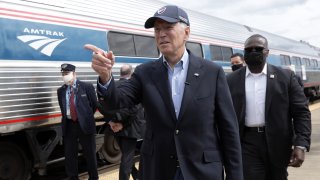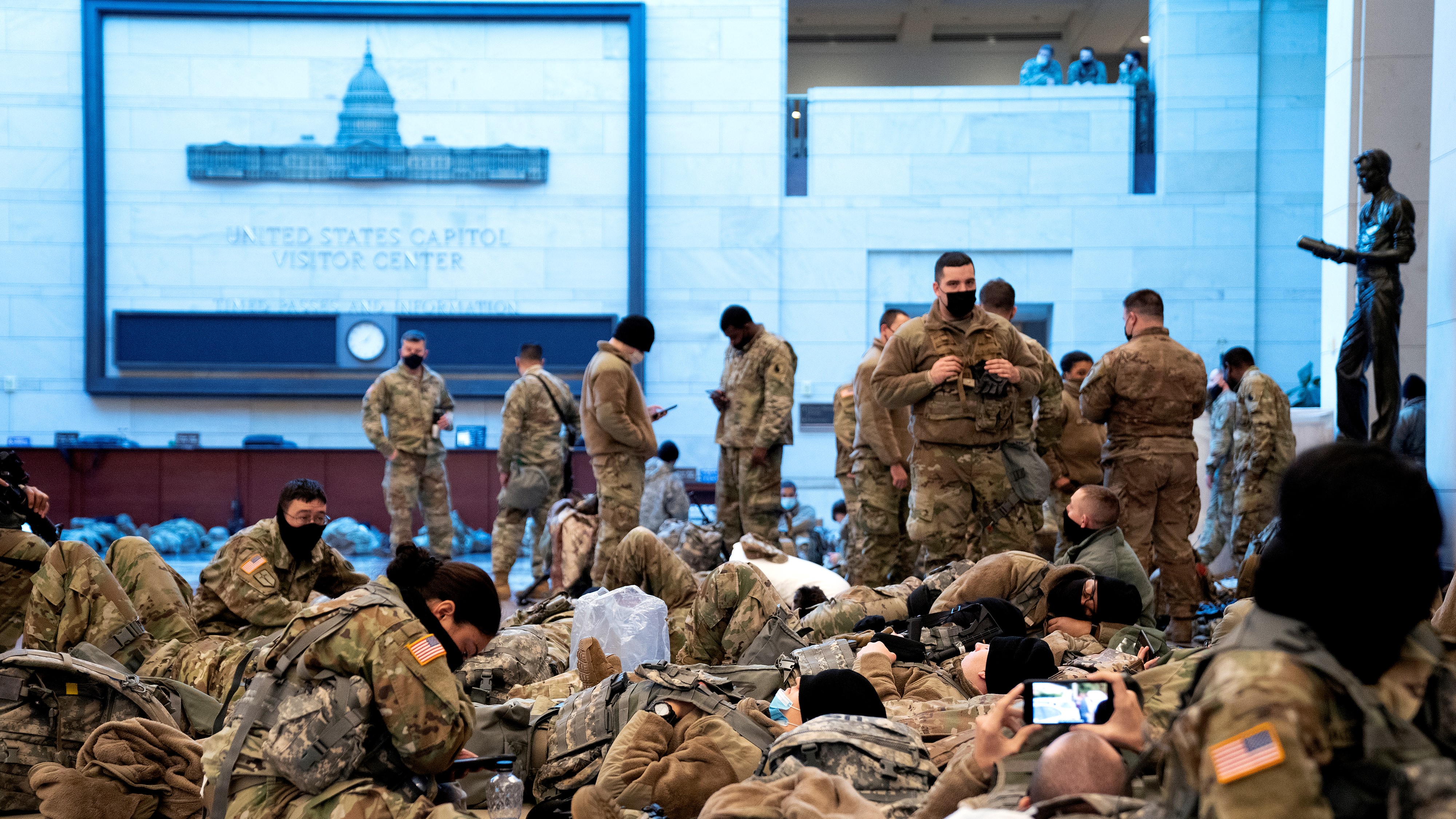
President-elect Joe Biden will no longer be taking an Amtrak train to Washington for his inauguration because of security concerns, a person briefed on the decision told The Associated Press on Wednesday.
The president-elect’s decision reflects growing worries over potential threats in the Capitol and across the U.S. in the lead-up to Biden's Jan. 20 inauguration.
Security in Washington has ramped up considerably in preparation for the inauguration after the violent insurrection at the U.S. Capitol last week by supporters of outgoing President Donald Trump, and the FBI warned over the weekend of plans for armed protests at all 50 state capitals and in Washington, D.C., in the days leading up to the event.
We've got the news you need to know to start your day. Sign up for the First & 4Most morning newsletter — delivered to your inbox daily. Sign up here.
The person briefed on Biden's decision spoke on condition of anonymity to discuss internal matters. The news was first reported by CNN.
The move to forgo the 90-minute train ride from his hometown of Wilmington, Delaware, to Washington was likely not easy for the president-elect. Biden’s preference for riding the train during his 36-year Senate career was such a central part of his public persona that he rode Amtrak home on his final day as vice president, and he used a train tour through Ohio and Pennsylvania during the presidential campaign as part of an effort to appeal to blue-collar workers.
Biden became known for riding the train starting from his very earliest days in the Senate, when he made a point to return home nearly every night to help raise his young sons after his wife and young daughter died in a car accident in 1972. His embrace of Amtrak — and the friends he made among the train conductors and staff as a regular — was featured in a short film that aired during the Democratic National Convention last August.
The train ride is not the only security-related development surrounding the inauguration.
On Wednesday, Biden received a briefing from FBI officials, the Secret Service and his national security team about the potential for additional violence in the coming days.
“In the week since the attack on Congress by a mob that included domestic terrorists and violent extremists, the nation has continued to learn more about the threat to our democracy and about the potential for additional violence in the coming days, both in the National Capital Region and in cities across the country,” according to a statement from the Biden transition team. “This is a challenge that the President-elect and his team take incredibly seriously.”
Across Washington, but particularly around the Capitol, the National Mall and some nearby federal buildings, security has increased considerably, with nonscalable walls and metal gates erected, streets closed and a new contingent of National Guard troops camped out at the Capitol.



